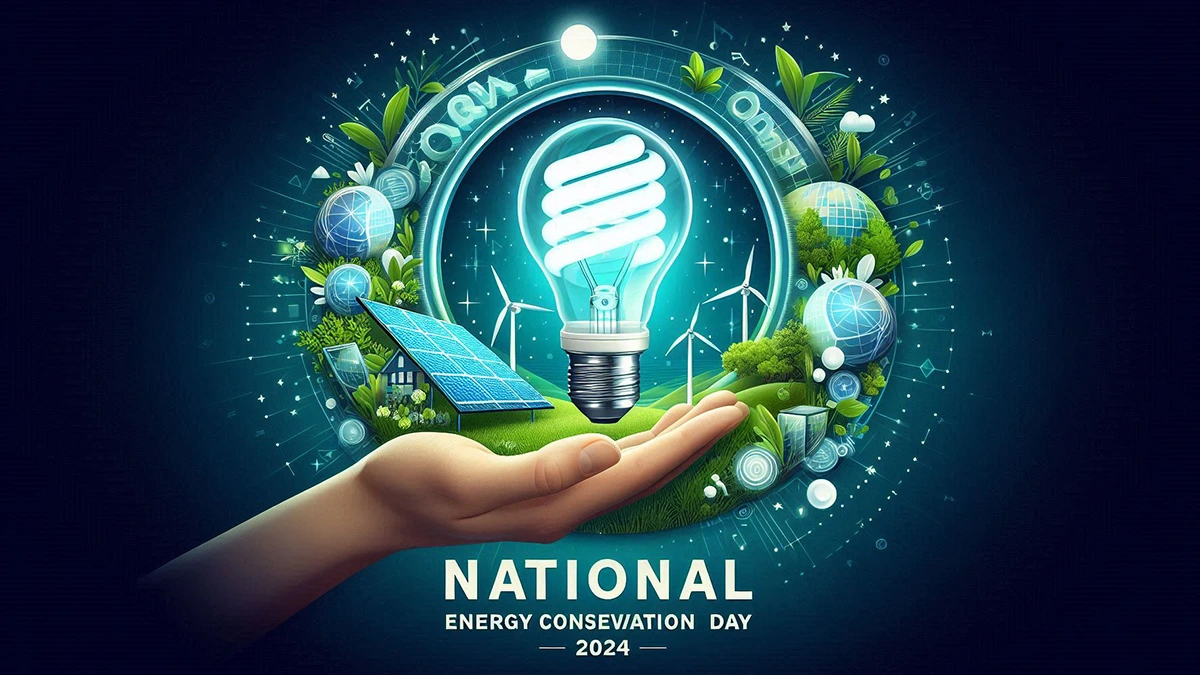Dr. Parshotam S. Manhas
“The Earth has enough resources to meet every person’s needs, but not every person’s greed.” — Mahatma Gandhi
National Energy Conservation Day is celebrated annually on December 14 since 1991 to raise public awareness regarding the importance of energy conservation and to highlight India’s achievements in energy efficiency. This day serves as a reminder to integrate eco-friendly practices into our daily lives. The ultimate aim of energy conservation is to assure sustainable energy usage, allowing current demands to be met without compromising future generations’ needs. The theme for 2024 is “Power Sustainability: Every Watt Counts,” which emphasizes that every small effort in energy conservation is significant, encouraging individuals, institutions, industries, and governments to embrace sustainable energy practices. In light of the pressing environmental challenges we face, every watt saved brings us closer to a more sustainable future. Today, National Energy Conservation Day holds greater importance as we confront the dual challenges of climate change and energy security. By advocating for energy conservation, we can decrease our reliance on fossil fuels, mitigate the impacts of climate change, and build a greener future for all.
National Energy Conservation Day 2024
The Bureau of Energy Efficiency (BEE) under the Ministry of Power, Government of India, established the National Energy Conservation Awards to recognize the efforts of industrial units, institutions, and organizations in reducing energy consumption while maintaining production levels. The inaugural awards ceremony took place on December 14, 1991, coinciding with the declaration of ‘National Energy Conservation Day.’ These awards are presented annually by esteemed dignitaries in a ceremony held on December 14. The BEE plays a crucial role in formulating and executing strategies to alleviate excessive energy consumption, having signed the Energy Conservation Act in 2001 to combat climate change through comprehensive development. The BEE collaborates with designated consumers, agencies, and organizations to optimize existing resources and infrastructure in pursuit of its goals.
Moreover, the National Energy Efficiency Innovation Awards (NEEIA), launched in 2021, recognize outstanding contributions and innovations in energy efficiency. NEEIA accepts applications from two categories: Category A for professionals in the Industries, Building, and Transport sectors, and Category B for Students and Research Scholars. The evaluation criteria include reliability, affordability, impact on energy savings, and effects on environmental sustainability.
Since 2005, the Ministry of Power has also organized Painting Competitions on Energy Conservation at the School, State, and National levels, aimed at raising awareness and promoting the efficient use of energy among students in grades 5 to 10, divided into two groups, ‘A’ and ‘B’.
Energy conservation signifies the responsible use of available resources and the prevention of energy waste through efficient methods. To enhance the impact of energy conservation strategies, these practices need to be integrated into everyday behavior. In India, the government has implemented the “Energy Conservation Bill, 2001” for optimal utilization and conservation of energy, mandating energy-intensive sectors to conduct “Energy Audits” by accredited auditors. The BEE monitors energy consumption patterns and establishes norms for appliances, organizing various competitions, such as poster and slogan contests for children. Additionally, the BEE has initiated a “Star Rating System” for electrical appliances, such as refrigerators and air conditioners, where products receive 1-5 stars based on their energy efficiency; a five-star rating denotes minimal energy consumption within its category.
The Ministry of New and Renewable Energy (MNRE) has recently released data from October 2023 to October 2024, showcasing significant growth in India’s renewable energy sector. This progress highlights India’s commitment to its clean energy goals aligned with the ‘Panchamrit’ targets established by Prime Minister Narendra Modi. India’s total renewable energy capacity surged by an impressive 24.2 GW (13.5%), reaching 203.18 GW from 178.98 GW. This remarkable growth corresponds with India’s ambitious renewable energy objectives. Including nuclear energy, the overall non-fossil fuel capacity rose to 211.36 GW in 2024, up from 186.46 GW in 2023.
As of October 2024, large hydro projects contributed 46.93 GW and nuclear power added 8.18 GW to India’s renewable energy mix, reinforcing the diversity and resilience of our energy portfolio while supporting a comprehensive transition to green energy.
This substantial increase underscores our dedication to sustainable development and clean energy.
Energy conservation is crucial for ensuring a sustainable future and can be achieved through the following measures:
* Turn off lights and appliances when not in use.
* Utilize energy-efficient appliances.
* Opt for walking, cycling, or public transport instead of driving.
* Plant trees to absorb carbon dioxide.
* Support green lighting initiatives.
* Perform Energy Audits.
* Educate others on the significance of energy conservation.
By adopting these measures, we can:
Decrease Environmental Impact: Reduced energy consumption lowers carbon emissions and helps combat climate change.
Preserve Resources: Energy conservation aids in the preservation of finite natural resources such as coal and petroleum.
Enhance Economic Benefits: Lower energy expenses and reduced costs for businesses foster economic growth.
Facilitate Sustainable Development: Energy efficiency is pivotal to achieving sustainable development goals.
(The author serves as an Associate Professor of Physics at GGM Science College, Jammu)


Leave a Reply